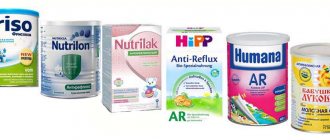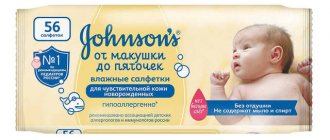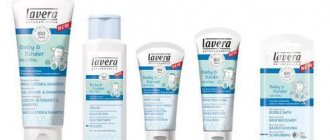Even adults can find it difficult to structure their diet in such a way as to get all the necessary vitamins and minerals through food. And for children who often suffer from poor appetite or categorically refuse to eat healthy foods, it is almost impossible to fill the daily requirement of vitamins - and then the best vitamins for children can help.
Pediatricians believe that it is enough for a child to eat a varied diet so that the body receives everything it needs. But, for example, in order to consume the required amount of vitamin A, a child will need to eat 400 grams of cottage cheese, the daily requirement of vitamin C is contained in 100 grams of citrus fruits, and to meet the child’s body’s need for vital omega-3, he will have to feed his son or daughter fish and nuts. Of course, it is difficult or even impossible for parents to organize such a varied diet (for example, if a child has an allergic reaction to some healthy foods). Then good vitamins for children - prescribed by a doctor based on test results - will only be beneficial.
Formation of immunity in a child
Immunity translated from Latin means “liberation.” In an adult, the immune system cleanses the body of any foreign elements (microorganisms, atypical cells, harmful substances, etc.).
d.). The immune system of a child is different from that of an adult. His defense mechanisms are not fully formed. Reactions to common pathogens can be unpredictable.
Scientists identify five critical periods in the development of a child’s immune system. They all have their own characteristics.
Stage 1
The formation of lymphoid organs begins during fetal development. The fetus, through the placenta, receives antibodies to the diseases that the mother suffered from (or was vaccinated).
Stage 2
After birth, the baby receives everything necessary to create nonspecific immunity through breast milk.
Important! Breast milk is an essential product for a newborn. Not a single “advanced” formula will be better than natural feeding.
Stage 3
By 6 months of age, the amount of maternal immunoglobulins decreases.
The child makes his first attempts to independently create a primary immune response.
Stage 4
At 2–3 years old, the child’s social circle expands. The baby begins to attend kindergarten. At two years old, he encounters many pathogens for the first time. He is very sensitive to infections, so he must be protected from unnecessary contact with sick people.
Stage 5
Children from 4 to 7 years old, on the contrary, should communicate with the outside world as much as possible. During this period, specific immunity is actively formed. Therefore, it is important to introduce him to different viruses and bacteria.
The disease will be a training session for the lymphoid organs. If the disease proceeds normally, without complications, then there is no reason to worry.
If the course is prolonged and subsequent complications occur, the preschooler is shown to a doctor to rule out pathology of the immune system.
Under what characteristic signs can vitamins be recommended for a 2-year-old child?
A child aged 2 years can be given monocomponent vitamin supplements or complexes if the main signs are present. The child lost his appetite and began to refuse regular balanced meals. Refusal to eat does not allow the baby to fully receive vitamins and nutrients . Vitamins are prescribed after an acute long-term illness and long-term treatment. Vitamin complexes are required to be given to the baby after antibiotic therapy . They help support immunity in the spring and autumn.
Important!
Vitamins in the form of mono-complexes are strictly prohibited for a child aged 2 years. If hypervitaminosis develops, there are diseases of the urinary system, or there is intolerance to a certain type of vitamin
Signs of low immunity
Congenital immune defects appear early. There are world standards that prescribe signs indicating hereditary pathologies of the immune system. These include:
- severe inflammatory processes in the paranasal sinuses more than twice a year;
- more than eight episodes of otitis annually;
- two or more severe pneumonias per year;
- intravenous administration of antibiotics;
- recurrent deep abscesses of the skin or internal organs.
Congenital or acquired (HIV infection, malignant disease, etc.) immunodeficiency requires treatment.
Young patients should be under constant medical supervision. Without medical intervention, death cannot be ruled out.
In healthy babies, situations may periodically arise when the immune system needs help. Many factors can reduce immunity. The main ones:
- stress (chronic or sudden);
- unhealthy lifestyle (lack of daily routine and adequate physical activity, poor sleep and nutrition, poor hygiene, etc.);
- physical or mental stress;
- poor environmental conditions;
- frequent or constant use of medications (antibiotics, hormones, etc.);
- some chronic diseases (diabetes mellitus, autoimmune diseases, etc.);
- deficiency of vitamins, microelements and nutrients in the growing child’s body.
The following symptoms indicate a lack of protective forces in a baby:
- frequent acute diseases with an atypical protracted course and (or) chronic infectious processes that cannot be treated;
- long-term difficult recovery after illnesses;
- systematic allergic reactions;
- constant general malaise, fatigue, poor sleep, lability of the nervous system and other alarming signs.
These symptoms are not specific. They characterize many diseases. Therefore, to make a correct diagnosis, you need to consult a pediatrician.
What is immunodeficiency
This is the name of a pathological condition caused by a significant decrease in the body’s defenses. The most likely cause of its occurrence is a deficiency of nutrients.
Poor mood and fatigue in a child can be caused by deficiencies of vitamins and microelements.
Symptoms of immunodeficiency:
- general weakness due to anemia developed due to iron deficiency;
- susceptibility to colds;
- long period of recovery after illness;
- periodic enlargement of lymph nodes;
- increased fatigue;
- decreased concentration;
- memory impairment;
- painful sensations in the abdomen due to flatulence;
- bowel dysfunction: diarrhea, constipation;
- allergic reactions;
- deterioration of hair and nails;
- pallor of the outer integument due to a decrease in hemoglobin, deficiency of nutrients, and deterioration of sleep.
Essential vitamins for immunity
For the normal functioning of the lymphoid organs, as well as the whole body, the child must receive the entire range of useful substances. According to Dr. Komarovsky and foreign experts, if there is no proven hypovitaminosis, there is no need to take artificial vitamins.
However, many Russian pediatricians insist that in conditions of an unfavorable environmental situation and the consumption of low-quality products, children do not have enough nutrients.
They claim that even in the autumn, when there is an abundance of fresh fruits and vegetables, some children have a lack of vitamins. Doctors recommend taking preventive courses:
- in winter (season of colds and shortage of natural products);
- if it is impossible to eat properly (poor social conditions, remote regions of residence, etc.);
- in situations where the immune system is under severe stress (stress, severe infectious diseases, etc.);
- when a child is in extreme conditions (military operations, environmental disasters, etc.).
Important! The vitamin-mineral complex is a therapeutic and prophylactic remedy! According to WHO, about 60,000 people in the United States are hospitalized annually with severe poisoning after taking vitamin preparations. More than half of them are children. Therefore, you cannot take vitamins on your own. They are recommended by a doctor if there are indications for this.
Basic vitamins necessary for the normal functioning of a growing organism and adequate functioning of the immune system:
- A (retinol, retinoids) is responsible for the synthesis of immunoglobulin A, interferon, lysozyme, and helps complete phagocytosis. Its role is diverse: improving vision and skin condition, formation of muscle and bone tissue, participation in antioxidant protection, etc.
- E (tocopherol) is a powerful antioxidant and immunomodulator. It reduces the risk of cancer cell formation and increases resistance to viruses, bacteria and fungal infections.
- C (ascorbic acid) stimulates the formation of interferon, strengthens the vascular wall, teeth and gums. Helps to recover from illnesses.
- D (calciferol) is required for the construction of the bone frame. It plays a significant role in creating innate immunity. Protects the child from viral infections.
- B vitamins (pyridoxine, riboflavin, pantothenic acid and other substances) perform numerous functions in the body and are involved in many metabolic processes. Vitamins B6 and B5 promote antibody synthesis, wound healing and regeneration.
A certain role in the development of immune reactions belongs to probiotics, fatty acids and microelements (iodine, iron, selenium, magnesium, zinc, etc.). Their deficiency can be identified by a doctor by examining the anamnesis, conducting an examination and prescribing laboratory tests.
Editor's Choice
| Rating | #1 | #2 | #3 |
| Name | GummiKing Multivitamin and Mineral Complex | Life Animal Parade Multivitamin Complex | Gummy Vites Complete |
Gummy Vites Complete
An optimal set of important components for the life and growth of the unprotected immune system of the child’s body. The composition does not contain any chemical additives, sweeteners, or high fructose content in the composition, which ensures that the drug is anti-allergic.
The dietary supplement is intended for children from two years of age as an additional source of vitamins and microelements. Zinc, iodine, pantothenic acid, lutein are the main building tools for the child’s nervous, bone, and digestive systems.
To learn more
Life Animal Parade Multivitamin Complex
By purchasing these vitamins for children from the age when they can consciously chew on their own, parents make a huge contribution to the full development and strengthening of the growing body. The main components of the drug are: 500 IU of vitamin D3, to maintain bone tissue, vitamin K2, probiotics, to support the digestive system of a growing organism, natural sweetener xylitol, so the product can be confidently classified as hypoallergenic.
Cuddly animal-shaped chews with natural flavors (cherry, grape, raspberry and orange) make taking vitamins more fun and exciting for kids.
To learn more
GummiKing Multivitamin and Mineral Complex
Manufacturing company: GUMMI KING, which occupies a leading position among vitamin manufacturers. The use of the drug is possible for children from two years of age and adults, in the amount of two capsules daily as an additive to the diet.
The main components of the drug are vitamins and microminerals necessary for life, excluding gelatin, wheat, soy, ingredients of animal origin, dyes and preservatives. Vitamins are recommended for use during heavy physical and mental stress, with an insufficiently balanced diet to maintain the body's resistance to external conditions, to improve the condition of the skin, hair, systems and individual organs.
To learn more
Age requirements
Any vitamin-mineral complexes and dietary supplements are selected strictly in accordance with the age of the child. Even the best products should not be taken if they are designed for a different age group.
An infant does not need additional medications.
The baby gets everything it needs with mother's milk. A formula-fed baby is provided with formula.
For a one-year-old baby, a pediatrician can already prescribe a vitamin and mineral complex for prevention or treatment. Taking synthetic vitamins should always be justified.
If the child is healthy, eats well and has normal living conditions, then there is no need to take a course of vitamins and microelements. They come in sufficient quantities with a varied, balanced diet.
An increase in the blood level of one or more vitamins is dangerous at any age. This is especially true for fat-soluble representatives that can accumulate in adipose tissue.
Vitamins B and C are easily excreted, since they dissolve in water, but they can also lead to unwanted symptoms of poisoning (headache, skin reactions, fever, etc.). Excess vitamin K is very dangerous for children under three years of age. It increases blood clotting, which can cause blood clots to form.
Children under two years of age especially need vitamins B, D, C and A; at three years of age, E and K are added to them. Primary schoolchildren (7–10 years old) need nutrients responsible for brain development (A, C , E and B). Children aged 11 to 15 years need to increase the concentration of vitamins B3 (PP, nicotinic acid) and B9 (folic acid).
Analogues - immunostimulants
If for some reason vitamin-mineral complexes are not suitable (low efficiency, poor tolerance by the body), it is permissible to consider more effective drugs. They belong to the group of immunostimulants.
The principle of action of such drugs is based on the ability to influence the thymus gland, bone marrow, because These are organs of the immune system. Such preparations contain biologically active substances.
For example:
- Bronchomunal;
- Viferon;
- Derinat;
- Amiksin et al.
The immunostimulant Viferon is prescribed only by the attending physician after an examination.
List of the best vitamin preparations and complexes
The pediatrician may prescribe a specific drug or provide a list of several representatives. Parents choose a product at the pharmacy that is suitable in price, composition and release form.
For very young children who have turned one year old, the supply of medicine is important. This can be a gel, syrup or drops.
For children who go to kindergarten, marmalades have been developed in the form of funny animals with different tastes. Schoolchildren can now be given pills like adults.
It is better to buy vitamins for children’s immunity from well-known manufacturers (cheap analogues are not always subject to research). Ratings of popular and effective drugs can be found on the Internet.
Developments in this area are ongoing. This allows you to create new and improve existing vitamin-mineral complexes. Doctors and parents give their preference to the following representatives (top list):
- a line of “Alphabets” for children of different ages;
- “Pikovit”, “Pikovit Plus” and “Pikovit Prebiotic”;
- “Completes ACTIVE bears;
- "Be-be-bears Intensive Vitamin C";
- "Multi-tabs" - Baby and Junior;
- "Supradin Kids";
- "Vitamishki Immuno+";
- "Vitrum Kids";
- "Doppelhertz Kinder";
- "Univet Kids";
- "Sana-sol";
- "Kinder Biovital";
- "Immunal plus S".
This is by no means a complete list. To solve certain problems, you need to purchase specific drugs. For example, the “Baby Formula Teddy Bear Calm” was developed for hyperactive children.
"Lutein Complex for children" and "Complivit Oftalmo" are created to maintain vision. They are especially important for schoolchildren who read a lot and spend time at the computer. "Solgar Omega-3" is intended to compensate for the deficiency of fatty acids.
Omega-3 fatty acids strengthen the body
Today, there are many drugs that can strengthen a child’s immunity. 2 years is the period when you can begin to improve your baby’s health. In some cases, you can do without pharmaceuticals. For example, fish contains omega-3 fatty acids. This product can be given to a child from 6 months approximately once a week, and at two years old - twice every 7 days. Omega-3 acids are also found in nuts. Before feeding the baby, they should be crushed. If your child does not particularly like such products, then they can be replaced with fish oil. However, this issue should be discussed in advance with the doctor who is observing the baby. After all, excessive consumption of vitamin D often leads to negative consequences.
Comparison of drugs
Important! The table can be scrolled left and right.
| Drug name | Compound | Child's age | Release form | pros | Flaws | Average price (RUB) |
| Alphabet (Russia) | Balanced complex of vitamins, macro- and microelements | From 1 year to 18 years | Sachets, chewable or regular tablets (60, 120, 210 pieces) | Complete, specially developed composition, affordable price | The tablets must be taken three times a day | From 300 to 600 depending on the complex |
| Pikovit Plus (Slovenia) | 12 vitamins and 4 minerals | From 4 years and older | Chewable tablets with banana flavor (27 pieces) | Multi-component, strengthens the immune system, adapts to stress | Fast packaging consumption | 250 |
| Vitamishki Immuno+ (Canada) | Vitamins C and E, zinc, selenium, sea buckthorn extract | From 3 years and older | Lozenges with different flavors: peach, lemon, orange and grape (60 pieces) | Natural composition, with sea buckthorn, which improves the functioning of the immune system | Lack of many vitamins and microelements | 425–600 |
| Vitrum Kids (USA) | Vitamins B, C, A, E, D and minerals (magnesium, calcium and others) | From 4 to 7 years | Raspberry flavored gummy bears (30 tablets) | Improves tooth enamel, strengthens the nervous and immune systems | May cause hypervitaminosis A and D | 550 |
| Doppelhertz Kinder (Germany) | Natural multicomponent preparation | From 4 years and older | Raspberry and orange flavored lozenges (60 pieces) | Has a beneficial effect on studies, improves immunity, the package lasts for 2 months | Contraindicated in case of individual intolerance | From 490 |
| Immunal plus S (Slovenia) | Echinacea and ascorbic acid | From 1 year and older | Oral solution | Natural immunostimulant | You may be allergic to echinacea | 360 |
| Kinder Biovital (Switzerland) | Combination drug | From 1 year and older | Gel for oral administration | Possible local use, convenient form of administration | Contraindications: excess vitamins A and B, Ca. | 300 |
| Be-be-bears Intensive Vitamin C (China) | Vitamin C | From 3 years and older | Pectin chewing lozenges (90 pieces) | Lasts for 3 months, one-component product | Only one active element in the composition | 405 |
| Multi-tabs Baby (Denmark) | Vitamins A, C and D | For babies up to 1 year | Drops | Prevention and treatment of rickets, assistance in the formation of body systems | Possibility of developing allergies and individual intolerances | 400 |
| Complivit ACTIVE bears (Poland) | 10 vitamins | From 3 to 14 years | Chewable lozenges (30 pieces) | Helps with mental and physical stress | No microelements, not for children with diabetes | 300 |
| Sana-sol (Norway) | Multivitamin complex | From 1 year and older | Syrup | Replenishes vitamin deficiency | Missing minerals | From 100 to 150 |
| Supradin Kids Bears (Germany) | Multivitamin preparation | From 3 years | Chewy bears (30 and 60 pieces each) | Strengthens the immune system, prevents hypovitaminosis | No minerals | From 220 |
| Univit Kids (Germany) | Vitamins A, C, D3, E, B3, B6, B12 | From 3 years | Chewable dinosaurs (30 pieces) | Replenishes vitamin deficiency | Missing microelements | From 200 |
Important! Allergic reactions and individual intolerance may occur when taking any of the above drugs.
Mom and dad can choose and buy an inexpensive, effective drug to strengthen the immune system. However, before giving your child vitamins for prevention, you need to create normal conditions for him and a nutritious diet.
Synthetic products are no substitute for hardening, adequate physical activity and walks in the fresh air. Moreover, artificial substances created in laboratories can cause harm instead of benefit.
Main factors on which growth depends
- The most balanced diet . A child’s diet should include proteins, fats, carbohydrates, and microelements. It is not recommended to consume carbohydrates alone, as they can slow down the baby’s development. Food should not contain dyes, preservatives or flavor enhancers.
- Natural and healthy products . Fats must be obtained from natural products: vegetable and butter, meat and dairy products.
- Physical exercise . Today, children are walking outside less and less, and are increasingly spending time at home in front of the TV or at the computer. We need to get rid of this! For the development of a child in height, movement in the fresh air is important. It will be useful to run or jump outside. You can also enroll your child in any sports section, dancing, and so on.
- Rest . For rapid development, the baby needs at least eight hours of sleep.
- No stress . For a little person, any stress is a problem. Poor relationships with peers, conflicts with teachers, any internal experiences can slow down growth. In this situation, you can contact a psychologist who will certainly help the child deal with the problems, and the main task of the parents is to create a favorable environment in the family so as not to disturb the baby.
- Vitamins for growth . One of the main places is occupied by vitamins, which help the baby’s bones grow and strengthen them.
Probiotics will help your baby
What other drugs are there to boost immunity? Probiotics are very often prescribed to children. These are beneficial bacteria that are found in yogurts and some milk formulas and cereals. Such remedies are often recommended after completing a full course of antibiotic treatment. After all, these drugs kill not only bad, but also good bacteria.
Probiotics are substances that stimulate the growth of beneficial bacteria in the intestines. Most of them are found in some baby cereals, chicory, bananas, milk with lactose, and yoghurts. These are the foods that should be included in your child’s diet.
Purple echinacea
You can give immunity preparations to children based on this plant from the age of two. You can prepare the infusion yourself. To do this, you need to take a few tablespoons of dried purple echinacea herb and pour it with a glass of water, preferably boiled. After this, the container with the product must be placed in a water bath, brought to a boil and simmered for 30 minutes. Then the finished broth needs to be strained. This can be done using gauze folded several times. The resulting volume should be brought to the original volume. For this you can use ordinary boiled water. The result should be 20 milliliters of the finished product.
A decoction of Echinacea purpurea should be taken one tablespoon three times a day. It is better to drink the finished product 20 minutes before meals. The drug should be stored in the refrigerator, but not more than 2 days.










